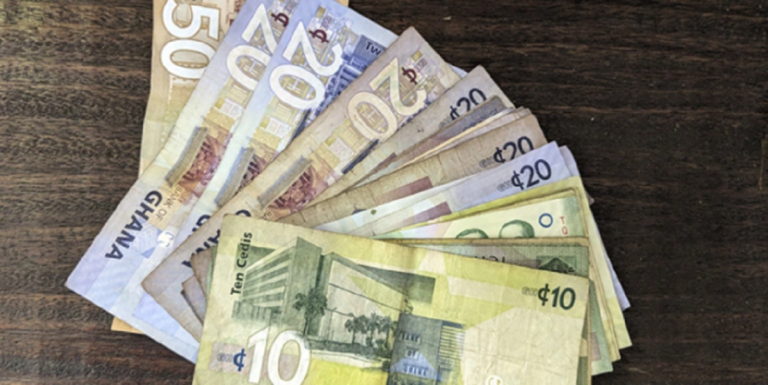
Ghanaian Cedi has crashed by 72% in 10 Months.
Newsonline reports that the Ghanaian cedi has lost 72% of its value against the US dollar since the start of the year.
At the time of writing this article, the USD/GHS was trading around 1/10.45. This is indicative of a 45% decline within 6months.
Despite Ghana’s central bank raising its interest rate to a record high of 24.5% in an effort to reduce inflation and strengthen the Cedi, the currency has continued to fall.
This implies that corporate operating expenses, particularly those related to manufacturing, will grow, which will lead to increases in some market goods’ pricing and, ultimately, inflation.
Ghana is battling debt, 20-year-high inflation, a weak currency, and rising inequality. In August 2022, inflation increased to 33.9% from 9.7% the previous year. Furthermore, these vulnerabilities have been exacerbated by the current Russia-Ukraine conflict and the COVID-19 pandemic.
Hence, Ghana’s government was compelled to seek economic assistance from the International Monetary Fund (IMF). A new assessment of the country’s debt sustainability will be part of the engagement.
Ghana will need to take action to restructure its debt if the new review finds that the country’s debt levels are unsustainable in order for it to be eligible for IMF assistance. According to the Fund, lending to nations with unsustainable debts is prohibited until those nations take action to restore their financial sustainability, which may include debt restructuring.
Ghana’s total public debt as of June 2022 was $54.4 billion (78.3% of GDP) from US$32.3 billion (l55.5% of GDP) in 2017, according to central bank and finance ministry data. Of this, external debt was US$28.1 billion (40.5% of GDP), while domestic debt issued in cedis was US$26.3 billion (37.8% of GDP).
The outlook for Ghana’s inflation is still bleak, and the Bank of Ghana is being forced to step up its tightening of policy as a result of the recent significant policy rate increases by advanced nations.
The second quarter’s economic growth in the country that produces gold, cocoa, and oil appeared strong, according to the Bank of Ghana, and the outlook for the cedi currency has improved as a result of the recent disbursement of an Afreximbank loan for $750 million and the signing of a syndicated cocoa loan for $1.13 billion.
EFCC has denied banning foreign missions from transacting in dollars. NewsOnline Nigeria reports that…
President Tinubu has banned the purchase of petrol-dependent vehicles. NewsOnline Nigeria reports that President…
The details of Peter Obi’s meeting with Atiku, Saraki, and Lamido have emerged. NewsOnline…
Governor Fubara has vowed to establish an investigative panel to probe Wike. NewsOnline Nigeria…
NLC and TUC have shut down disCos offices nationwide over the electricity tariff hike amid…
EFCC has applied to join Diezani Alison-Madueke’s UK trial. NewsOnline Nigeria reports that the…